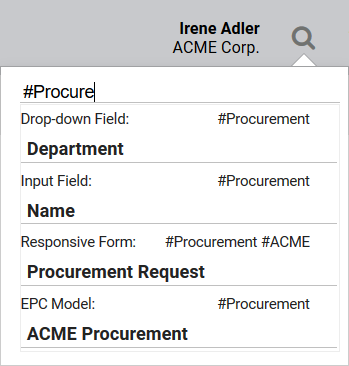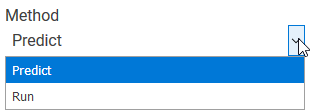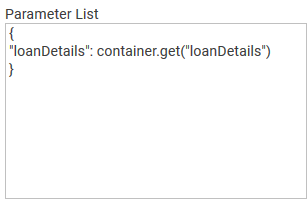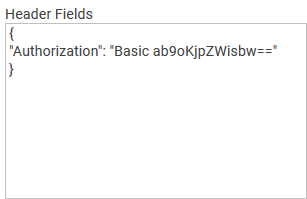The Element Machine Learning
|
Element |

|
|
Function |
The Machine Learning element can only be found inside an Integration element and is used in an EPC to integrate machine learning models. The underlying machine learning service must be programmed according to specific requirements. A template can be provided on request. If you are interested in using the Machine Learning element, please do not hesitate to contact the BPaaS support team. |
|
Connection |
Predecessor: None
|
|
Example |
On ACME's Scheer PAS Server runs a machine learning service. A customer enters his data in a form. The data is then processed by the Request ML Service. The result is the decision if wether or not the customer will get a loan and to what loan rate. 
|
Configuration Options
Edit the element via the Edit Sidebar.

|
Name Name of the element within modeling. |
|
|
ID The read-only field contains the model ID of the element. Designers can use the ID for example in the search to link the element in other models. |

|
Description A commentary field for the modeler. Its content is invisible to users and its sole purpose is internal documentation. |

|
Hashtags Possibility to insert your own key terms . The leading hashtag sign # (hash) will be inserted automatically. Use the spacebar to insert multiple hashtags: 
One hashtag may be issued for multiple elements: 
|

|
ML model name In this field enter the name of the machine learning model you want to use. |

|
Method Choose the corresponding method matching your machine learning service action from the drop-down menu. The following methods are available: 
|

|
List of Parameters Contains the list of parameters to be transferred. Example: The loan details are to be transferred 
|

|
Header Fields Here you may allocate explicit header fields, for example cookies, tokens etc. Example: In the header field, credentials for authentication are saved. 
|

|
Field Name in Container Assign a name under which the server answer is saved in the container. If the Field Name in Container remains empty, integration.result will be used. Without further modeling the data is volatile, meaning it has been deposited in the container, but not saved. For further information see Saving and Deleting Instances. |

